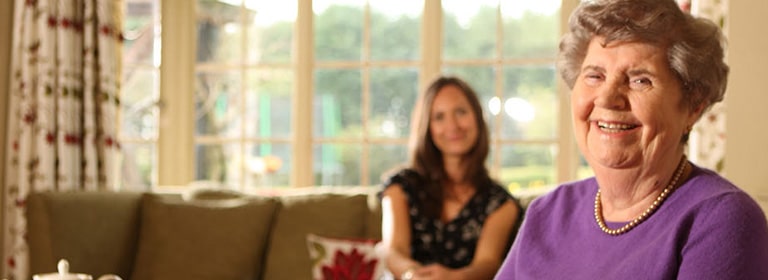Ways of working policy
This page was most recently updated on 12th April 2021.
In addition to our Coronavirus (COVID-19) Policy, we have specific ways of working in place for our carers for a range of different scenarios. These measures have been put in place to protect both our customers and carers, and ultimately to ensure that we can continue to provide high-quality care during these unprecedented times.
We are also encouraging all of our carers and staff to use the NHS Test and Trace system via their mobile phones whenever they enter a company office or branch. Those who don’t have smartphones must sign in and leave contact details so that we are able to get in touch with them if necessary. Find out more below.
View our coronavirus guidance View our PPE guidelines View our self-isolation guidelines1. If a customer has symptoms of COVID-19 and the carer does not have symptoms, the carer must adhere to the following:
- As for all customers, wash your hands upon arrival, as our instructions state, for a minimum of 20 seconds.
- As V11 PPE guidelines state – wear a fluid repellent surgical mask, face shield, disposable gloves and disposable apron to reduce the risk of you contracting the infection.
- Ask the customer to wear a mouth and nose covering to reduce the risk of transfer of the virus from the customer to you. If the customer refuses to do so, please take advice from your line manager.
- When your tasks are completed, discard all PPE into a tied bag, then into another tied bag, and place outside for 72 hours. After this time period has elapsed, you can then dispose of into a general rubbish bin.
- Wash your hands as instructed as the final action before leaving the property, for a minimum of 20 seconds.
- Your uniform must be changed at the earliest convenience and washed at 60°C.
- Ensure your line manager is informed of the customer’s health so that they can be monitored.
2. If the customer does not have symptoms but the household they live in is isolating, the following applies:
- The customer must remain at a safe distance from other members of the household – a minimum of 2 metres.
- If the customer cannot be fully isolated from infected family members, the customer must be cared for in the same manner as in Point 1.
- Wear disposable gloves, a disposable apron and face mask.
3. If a carer has symptoms of COVID-19, report to your line manager immediately. You should also:
- Self-isolate for at least seven days and until the symptoms have passed/recovery is evident.
- All care calls for the carer must cease until your recovery is evident and you have self-isolated for 10 days.
- You should keep your line manager fully up to date.
4. If a carer has no symptoms but lives in a household where someone does have symptoms:
- The carer must self-isolate for 14 days. If you show no symptoms after the 14 days, you may stop self-isolating and return to work.
- If the carer shows symptoms at any time within the 14 days, you must continue to self-isolate for seven days after the symptoms first display. This might be more or less time than the original 14 days.
- Wear disposable gloves, a disposable apron and face mask.
5. If a carer has no symptoms but lives in a household where someone else is in self-isolation for 14 days because they had been in contact with someone who has showed symptoms:
- The carer does not need to self-isolate unless any other member of the household starts to display symptoms. If this happens, follow the advice in Point 4.
6. If both the carer and customer have no symptoms:
- Follow normal hand washing protocols and wash hands when arriving and leaving the property.
- PPE – wear disposable gloves, disposable aprons and a face mask.
Other people are interested in...

Coronavirus (COVID-19) Information
We’re here to help with care during the coronavirus pandemic
Find out more

